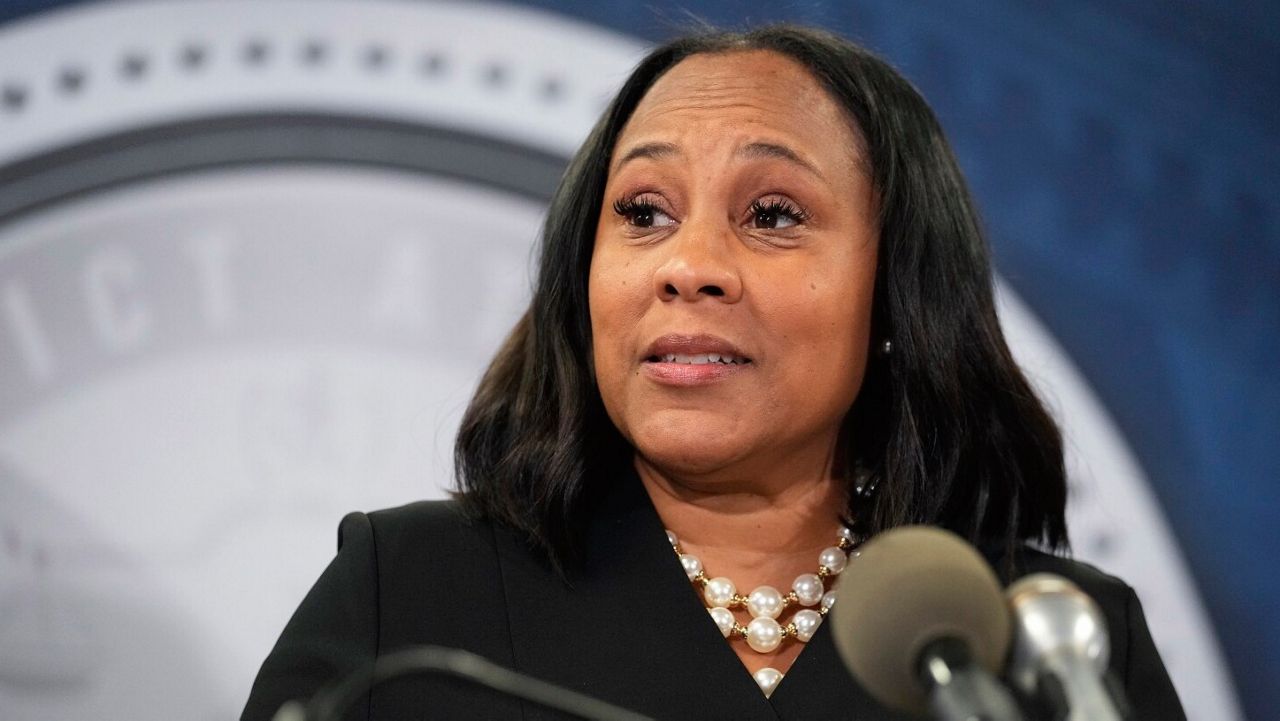ATLANTA — A state appeals court on Thursday removed Fulton County District Attorney Fani Willis from the Georgia election interference case against Donald Trump and others but did not dismiss the indictment, leaving the future of the prosecution uncertain.
What You Need To Know
- A state appeals court has removed Fulton County District Attorney Fani Willis from the Georgia election interference case against Donald Trump and others
- That decision Thursday leaves the future of the prosecution uncertain
- The case had already been largely stalled for months while the Georgia Court of Appeals considered the pretrial appeal
- The ruling on Thursday means it will be up to the Prosecuting Attorneys' Council of Georgia to find another prosecutor to take over the case and to decide whether to continue to pursue it
The case against Trump and more than a dozen others had already been largely stalled for months while the Georgia Court of Appeals considered the pretrial appeal.
The new ruling means it will be up to the Prosecuting Attorneys' Council of Georgia to find another prosecutor to take over the case and to decide whether to continue to pursue it, though that could be delayed if Willis decides to appeal to the state Supreme Court.
Whether it is ultimately Willis or another prosecutor in charge, it seems unlikely that a prosecution against Trump could continue while he's president for the next four years. But there are 14 other defendants who still face charges.
Two federal criminal cases against Trump have already been abandoned after the Republican won the presidency in November. Meanwhile, a judge in New York has refused throw out his hush money conviction from earlier this year, though the future of that case is uncertain.
A grand jury in Atlanta indicted Trump and 18 others in August 2023, accusing them of participating in a wide-ranging scheme to illegally try to overturn Trump's narrow 2020 presidential election loss to Democrat Joe Biden in the state. Four of them have since pleaded guilty after reaching deals with prosecutors. Trump and the others have pleaded not guilty.
Trump and some of the remaining defendants tried to get Willis and her office removed from the case and to have the case dismissed. They argued that her romantic relationship with special prosecutor Nathan Wade created a conflict of interest and that she made improper public statements about the case.
Superior Court Judge Scott McAfee ruled in March that no conflict of interest existed that should force Willis off the case. Trump and the others appealed that ruling.
McAfee wrote that the prosecution was "encumbered by an appearance of impropriety." He said Willis could remain on the case only if Wade left; the special prosecutor submitted his resignation hours later.
The allegations that Willis had improperly benefited from her romance with Wade resulted in a tumultuous couple of months in the case as intimate details of Willis and Wade's personal lives were aired in court in mid-February. Trump and others also argued that public comments Willis made in the wake of the revelation of the relationship improperly disparaged the defendants and their lawyers.
The allegations against Willis first surfaced in a motion filed in early January by Ashleigh Merchant, a lawyer for former Trump campaign staffer and onetime White House aide Michael Roman. The motion alleged that Willis and Wade were involved in an inappropriate romantic relationship and that Willis paid Wade large sums for his work and then benefited when he paid for lavish vacations.
Willis and Wade acknowledged the relationship but said they didn't begin dating until the spring of 2022. Wade was hired in November 2021, and their romance ended last summer. They also testified that they split travel costs roughly evenly, with Willis often paying expenses or reimbursing Wade in cash.
Speaking at a historically Black church in Atlanta soon after the relationship was revealed, Willis defended Wade's qualifications and her own leadership of her office. Defense lawyers said that speech included a series of improper and prejudicial comments against the defendants and their legal team, poisoning any potential jurors against them.



